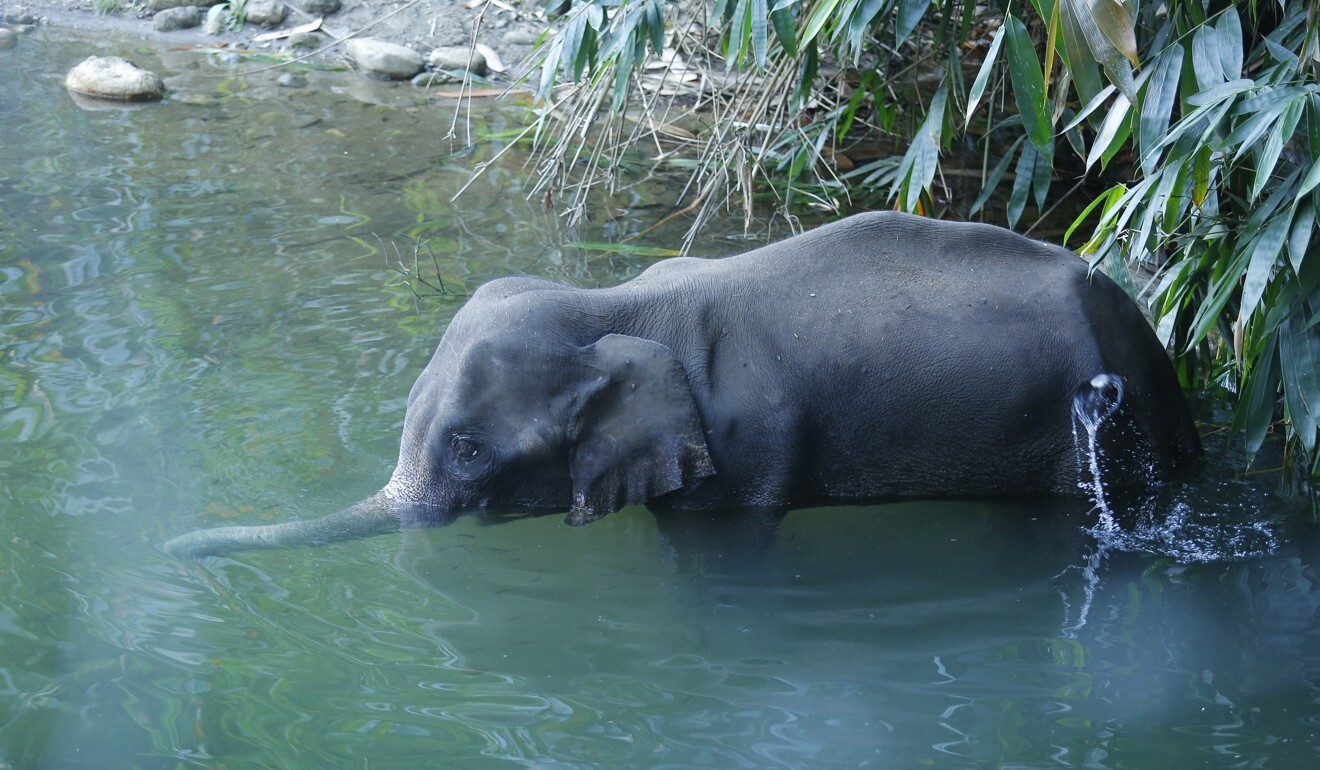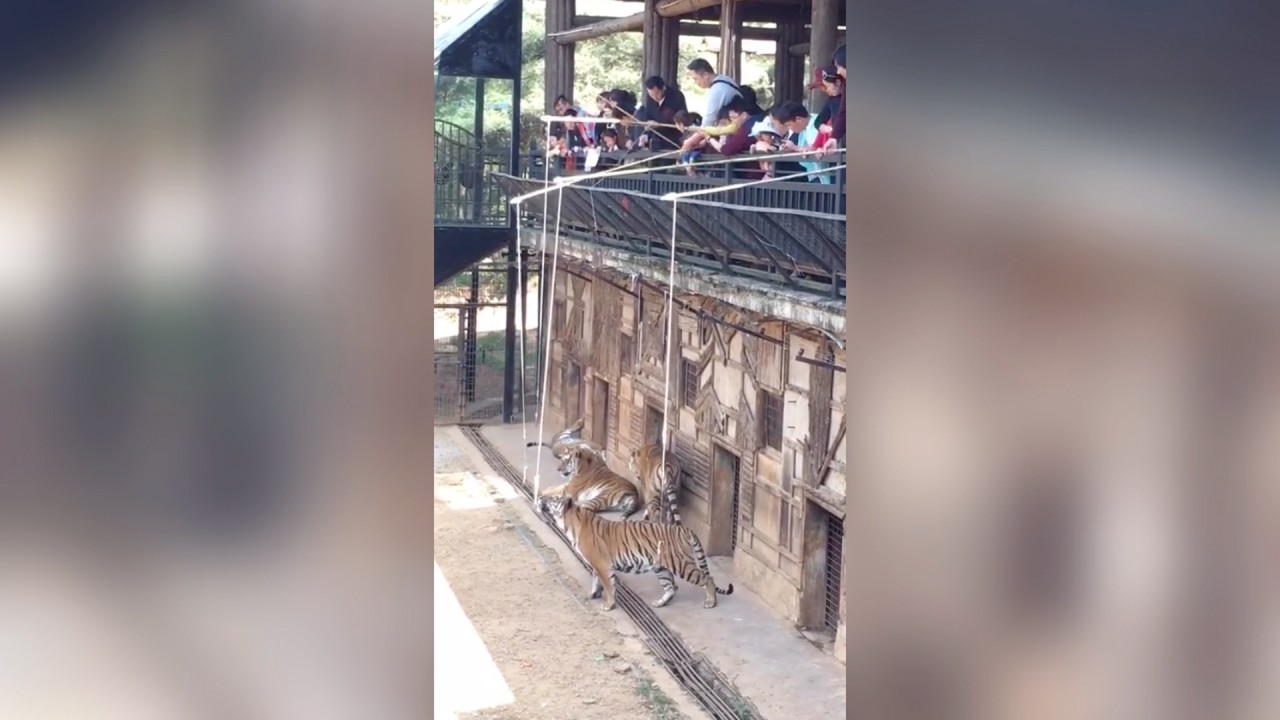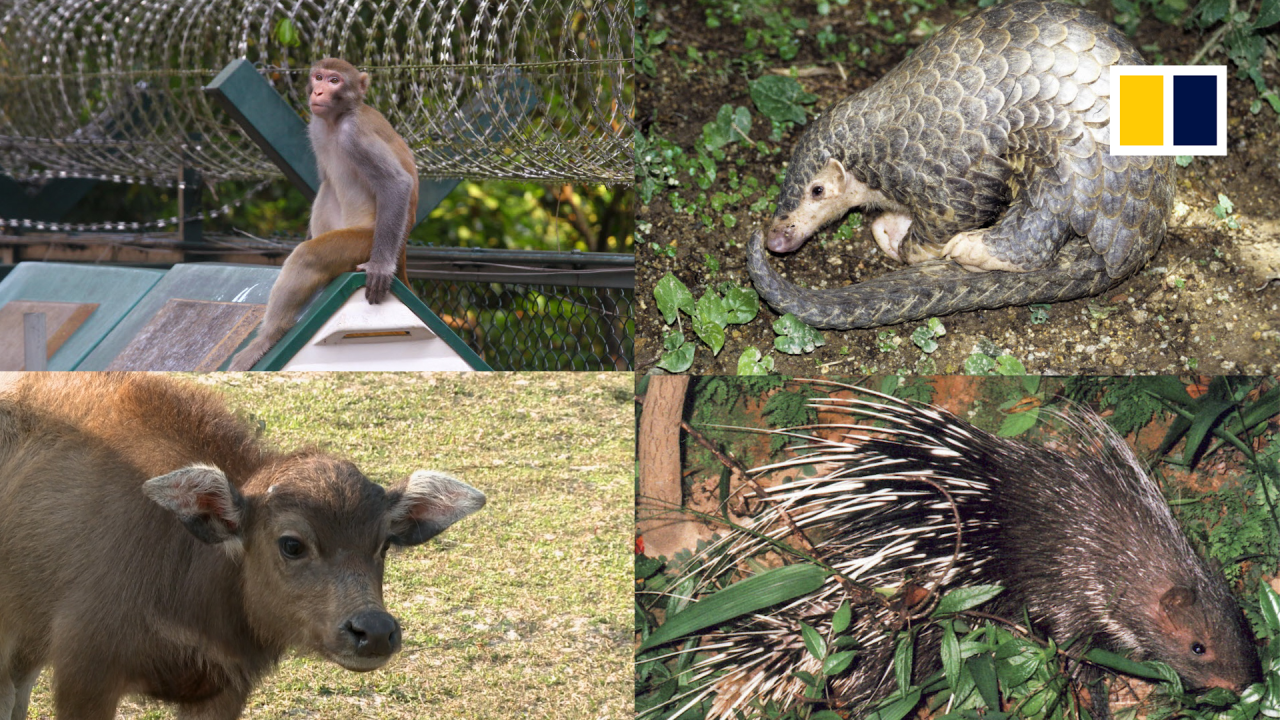
Food bombs, poison, steel-jaw traps: India’s farmer-wildlife war
- Outrage over the death of a pregnant elephant has shone a spotlight on the violent methods used to protect crops
- Some 338 elephants died of electrocution in 13 states between 2007 and 2014

Outrage over the death of a pregnant elephant that bit a pineapple stuffed with firecrackers in the southern Indian state of Kerala has shone a spotlight on the violent methods farmers use to keep animals off their land.
Besides using food laced with country bombs, farmers living near the forests use live-wire fences, iron leg-hold traps, steel-jaw traps, poisons and snares to ward off tigers, elephants, wild boars, nilgais, deers, peacocks and monkeys to save their crops.
On Wednesday, 12 men in the southern state of Tamil Nadu were arrested for killing a jackal by packing explosives in meat that blew up its mouth when it took a bite. Last week, a man in the northern state of Himachal Pradesh was arrested for feeding a pregnant cow an explosive-laden wheat-flour ball that blew its jaw off.
According to the Wildlife Trust of India (WTI), some 338 elephants died of electrocution in 13 states between 2007 and 2014. The WTI rescued nine leopards caught in jaw traps between 2012 and 2016 in the northern state of Uttar Pradesh.
“Tigers and leopards have lost lives accidentally due to electrocution from live fences which were put up to protect farms from crop raiding species, especially in the central states of Madhya Pradesh and Chhattisgarh,” said Mayukh Chatterjee, who heads the WTI’s human-wildlife conflict mitigation department.
In this man-animal conflict, there are cases in which animals have died after inadvertently eating food wrapped in country bombs meant for wilder species.
One person has been arrested over the death of the elephant last month, a case which caused an outpouring of grief including from Bollywood stars. The post mortem report found the elephant died after water entered her lungs when she immersed in a river to soothe her wounds.

Meanwhile, in a similar case, three people arrested over the death of another female elephant, which in April also ate a fruit stuffed with explosives, revealed the bait had been intended for wild boars.
Recently, the state has given permission to shoot wild boars, subject to conditions, but the farmers still used explosives.
Joshy Joseph, the general secretary of Kerala Farmers’ Federation, said that mostly, the farmers living close to forest land in his state used electric fencing with relatively harmless direct current running through it. “They also construct cracker-laden fences to ward off wild boars,” he said.
Conservation biologist Dharmendra Khandal of Tiger Watch said the raw materials to make such explosives were often available in areas next to the forests, as in the case of Ranthambore tiger reserve in the northern state of Rajasthan.
In 2017, a nationwide study on human – wildlife conflict mitigation conducted over 5,000 households around 11 reserves by Krithi K. Karanth and Sahila Kudalkar of Bangalore-based Centre for Wildlife Studies found 71 per cent of the households surveyed had suffered crop losses due to attacks by wildlife.
Traditionally, Indian farmers have chased animals, pelted them with stones, brandished fire torches and constructed fences.
Sunilam, the president of a farmers’ struggle group, Kisan Sangharsh Samiti, added that the farmers in the central state of Madhya Pradesh put up boundaries, installed scarecrows and blew horns all night to ward off wild boar and nilgai but “these methods haven’t been effective”.

00:51
Wildlife park in China cancels ‘tiger fishing’ after video trends online
Vijoo Krishnan, the joint secretary of the All India Kisan Sabha, which represents peasants, said natural calamities and the cutting of subsidies had worsened an “agrarian crisis” and pushed farmers to take “desperate” methods to ward off animals.
Clearly, the use of violent methods won’t end, despite the recent outrage. “This outrage took place because a pregnant elephant unsuspectingly ate the bait trap and died. The incident wouldn’t, perhaps, have grabbed the spotlight if a wild pig picked up the explosive-laden fruit, although they have continued to fall prey to such methods,” Chatterjee said.
But Chatterjee this could change if farmers constructed low-cost and easy to maintain animal-proof fences and developed cheap early warning systems. “Also, the governments and agencies working for the cause must involve the farmers to jointly look for, and implement solutions,” he said.
“In one of our projects in the north-eastern state of Assam, locals suggested an elephant-proof fence be erected to reduce crop damage from elephants, which they built and maintained themselves.”

01:35
Bright lights, big city, wild animals: Hong Kong’s wildlife
R. Mohammed Saleem, of Coimbatore-based Environment Conservation Group, said the frequent sensitisation programmes for the farmers, held by forest departments, helped the situation.
Vikas Rawal, professor at Centre for Economic Studies and Planning in New Delhi’s Jawaharlal Nehru University, said the failure of the government to develop “policies on appropriate land use and wildlife management plans” was the main problem.
But Sunilam said the government must “compensate for the loss” that farmers suffered from damage caused by animals.